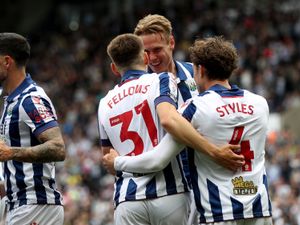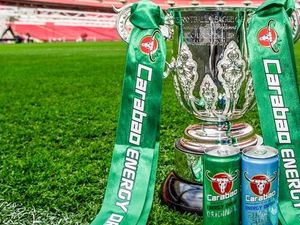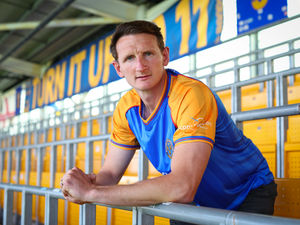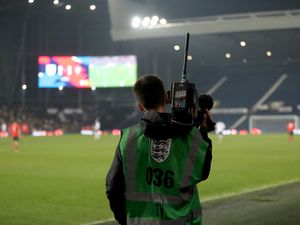Ron Atkinson: The desperate times at West Brom
Ron Atkinson has launched his new book The Manager, which is being serialised on Shropshire.com this week. Today, he recalls the time he left Manchester United and got a call from Real Madrid - and his short-lived return to The Hawthorns.
West Brom scrambled three points clear of the relegation zone and by September 1987, realising I was unlikely to be offered the Atletico Madrid job, I agreed to come back.
Things had become desperate off the field, too. West Brom was unrecognisable from the club I had left to join Manchester United six years before.
There were still some members of the old board left but any money was long gone. I once did an after-dinner speech for a hotel company on the premise that West Brom could use one of their hotels for an away game.
It was a long and very hard season.
When I arrived at The Hawthorns to replace Ron Saunders, West Brom were once more bottom of the Second Division with one point from four matches – and they had also been knocked out of the League Cup by Walsall. My first game was against Shrewsbury and we won thanks to an own-goal from Nigel Pearson, who was to become my captain at Sheffield Wednesday.
Old Trafford to The Hawthorns - via a meeting with Mad Max
After the news I was going to be leaving Old Trafford, I drove back to the Cliff to invite the Manchester United players back to my home in Rochdale for a farewell party.
That night, with all the lads around me and the laughter bubbling away, I got a call from Madrid. The president of Atletico, Vicente Calderon, wanted to speak to me about becoming their manager at the end of the season.
I would be taking over from Luis Aragones. I could relax, do a bit of television work and turn down Blackburn's offer to replace Bobby Saxton as manager.
In March 1987, Calderon died of a heart attack, which triggered new presidential elections. I was asked to travel over to Madrid to support the establishment candidate and also asked, bizarrely, if I could bring along an English international to do some publicity.
The only one I could get hold of was Ricky Hill, who was then at Luton, and I asked him if he fancied a trip to Spain. Compared to what the other candidate was doing, the sight of Ricky Hill was unlikely to sway many of Atletico's voters. Jesus Gil was campaigning hard.
The best way to describe him is that he looked like Private Doberman from Sergeant Bilko, only whereas the original Doberman was small, Gil was a giant, standing six foot six. I came to call him Mad Max.
He was mayor of Marbella and ran it as if it was his own property and as a firm supporter of General Franco his politics were, shall we say, uncompromising.
Atletico had reached the final of the Copa del Rey and would face Real Sociedad, who were then managed by John Toshack, in the final in Zaragoza.
Gil paid for private trains to ferry the Atletico supporters the 240 miles to La Romareda. He also brought along Paulo Futre, who had just won the European Cup with Porto and been runner-up to Ruud Gullit in the poll to become European Footballer of the Year.
I am afraid Ricky found himself a little overshadowed. Gil won the election and appointed Cesar Menotti, who had managed Barcelona when Manchester United knocked them out of the Cup Winners' Cup, but whose great claim to fame was that he had taken Argentina to the World Cup in 1978.
While all this was going on I'd had a conversation with Brian Boundy, one of my old directors at West Bromwich Albion who had been a big supporter of mine when I was at The Hawthorns.
When we talked they were bumping along the bottom of the old Second Division and he was desperate to bring the club back to what it was.
He told me that he would bring in new investment, adding: 'If we don't, we will get relegated into the Third Division.'
I knew we had to rebuild the club quickly. I took Andy Gray from Aston Villa for £20,000, we got Brian Talbot on a free from Stoke and Kenny Swain on loan from Portsmouth, and Tony Morley, who had won the European Cup with Aston Villa but was now playing for Den Haag in Holland. These players had all long since celebrated their thirtieth birthday and the team had a Dad's Army quality to it but it also had plenty of professionalism, something West Brom then lacked.
There were one or two young players like David Burrows and Carlton Palmer who learned from being next to these old pros and whose careers benefited from it. However, by the time we played Shrewsbury again, this time at Gay Meadow, we had won one game in three months.
Our chairman was now Sid Lucas, the old Brummie who had welcomed me to The Hawthorns the first time around with a rather lesser car than the one I was driving at Cambridge United.
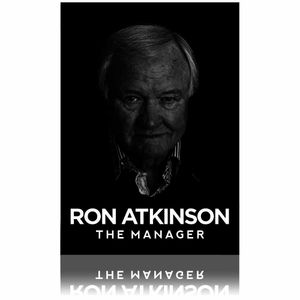
Atletico and a quarter of a million a year
By the time my second season at The Hawthorns got under way, I felt I was getting to grips with West Brom.
But, out of nowhere, I got a call from Jesus Gil's people. He wanted me to go to Atletico Madrid after all.
Atletico had finished third in La Liga in 1988, which had not been enough to keep Menotti his job.
His replacement, Jose Ufarte, had lasted precisely three games before quitting. Job security would not be high and West Brom were climbing the table and looking like they might be on an upward curve.
The club had a new chairman, John Silk, and I went to him and told him that if he put another 18 months on my existing contract I thought I could get them promoted to the First Division. The subject of money never came up and I wasn't after a raise.
Silk replied, 'Get us out of this division and we will look at your contract.' I was on a £40,000 salary at The Hawthorns. Atletico Madrid were offering a quarter of a million a year.
They were playing in the top division in Spain. In Paulo Futre they employed one of the best footballers in Europe. Maybe I could handle the president.
Brian Talbot took over as player/manager and West Brom did quite well for a while.
However, the rot set in and in January 1991 they were knocked out of the FA Cup at home to Woking.
Brian was replaced by Bobby Gould, who did what I had promised John Silk in the autumn of 1988. He took West Brom out of the Second Division and was given a contract extension.
He had relegated them.
We were winning 1–0 at Shrewsbury but Sid suddenly announced he couldn't take any more and was going to sit in the dressing room until the final whistle. When the final whistle went, we had held on to the lead but, as we walked down the tunnel, I turned to Tony Morley and said, 'Watch this.'
I began shouting, 'How can the referee have given it. The penalty could mean relegation.'
Sid burst open the dressing-room door, his face a picture of pain, pleading to know what had happened.
I pointed to the rest of the lads clattering down the tunnel and said, 'No problem, Sid. We won.' The Football League was then experimenting with relegation play-offs, an experience West Brom avoided by a single point.
n Ron Atkinson: The Manager is available from www.decoubertin.co.uk/BigRon – the retail price is £20 but it is currently available for £17.99 on the website.


